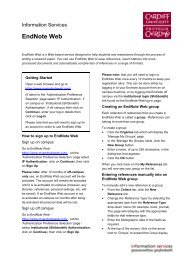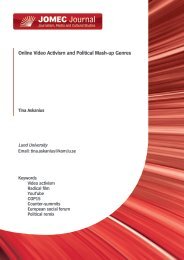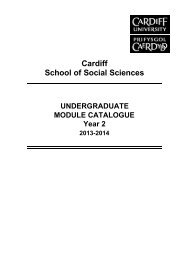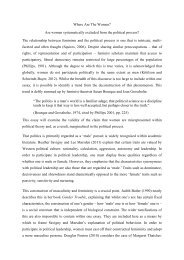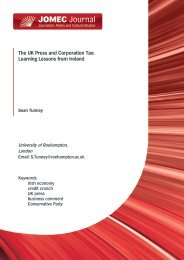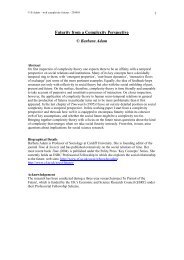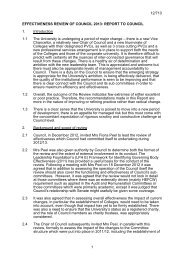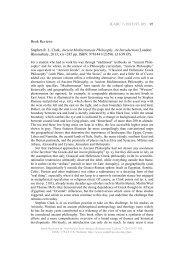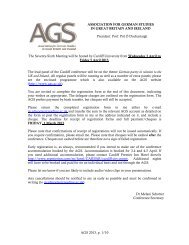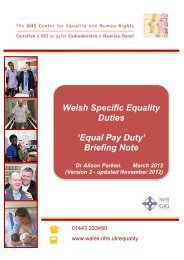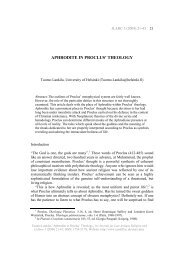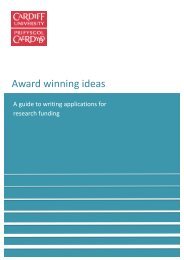Public Perceptions of Climate Change and ... - Cardiff University
Public Perceptions of Climate Change and ... - Cardiff University
Public Perceptions of Climate Change and ... - Cardiff University
Create successful ePaper yourself
Turn your PDF publications into a flip-book with our unique Google optimized e-Paper software.
Trust in the British government to adequately regulate nuclear power increased from 32% in<br />
2005 to 41% in 2010. In contrast, trust in current rules <strong>and</strong> regulation decreased in Japan<br />
from 19% in 2006 to 9% in 2011. While trust in the regulation <strong>of</strong> nuclear power was already<br />
low in Japan before the accident, it collapsed to an even lower level after the Fukushima<br />
accident. Although no post-Fukushima data is available for Britain, responses to an<br />
alternative trust question (“How confident or unconfident are you that the UK is prepared to<br />
h<strong>and</strong>le a major nuclear accident if one were to happen in one <strong>of</strong> our existing power<br />
facilities”) suggests that there is still a considerable level <strong>of</strong> trust in the management <strong>of</strong><br />
nuclear power after the accident (31% responded to be fairly or very confident).<br />
In addition to the items described above, the three British surveys included a number <strong>of</strong><br />
questions that can be used to show the development <strong>of</strong> public attitudes to nuclear power<br />
over a six year period from before to after the Fukushima accident. Table 2 shows that in<br />
2005 <strong>and</strong> 2011 a similar number <strong>of</strong> people want to continue nuclear power in Britain. It also<br />
shows that, while overall support for the continuation <strong>of</strong> nuclear power stayed the same,<br />
more people thought that the number <strong>of</strong> nuclear power stations should be increased after the<br />
Fukushima accident. Overall, the number <strong>of</strong> people wanting to phase out nuclear power<br />
decreased from 2010 to 2011, with more people now using the “don’t know” or “none <strong>of</strong><br />
these” options.<br />
Table 2. Which, if any, <strong>of</strong> the following statements most closely describes your own<br />
opinion about nuclear power in Britain today? (in %)<br />
GB2005 GB2010 GB2011<br />
We should increase the number <strong>of</strong> power stations 9 17 23<br />
We should continue using the existing NP stations <strong>and</strong> 34 29 21<br />
replace them with new ones when they reach the end <strong>of</strong><br />
their life<br />
We should continue using the existing NP stations but 34 33 21<br />
not replace them with new ones when they reach the<br />
end <strong>of</strong> their life<br />
We should shut down all existing NP stations now <strong>and</strong> 15 13 11<br />
not replace them with new ones<br />
Don’t know/none <strong>of</strong> these 7 7 14<br />
Figure 7 shows that concern about nuclear power has decreased substantially between<br />
2005 <strong>and</strong> 2011. Fewer people are fairly or very concerned about nuclear power after the<br />
Fukushima accident as compared to before. Similarly, Figure 7 shows that fewer people<br />
perceive the risks <strong>of</strong> nuclear power to outweigh the benefits <strong>of</strong> nuclear power after than<br />
before the Fukushima accident. Accordingly, more people perceived the benefits <strong>of</strong> nuclear<br />
power to outweigh the risks after than before the Fukushima accident. These results paint a<br />
picture <strong>of</strong> attitudes towards nuclear power having s<strong>of</strong>tened over the years, <strong>and</strong> suggest that<br />
Fukushima has not substantially changed attitudes to nuclear in Britain. If at all, the British<br />
public has become more positive about nuclear power in the wake <strong>of</strong> the accident.<br />
17



